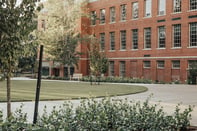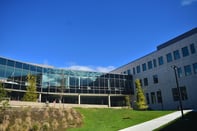Published on
Graduate Schools and MOOCs
“MOOCs are still very new to us,” Christine Noyes, a graduate enrollment services adviser at the University of Washington, told the Chronicle of Higher Education. “We have to figure out how to adapt.”
Joanne Canyon-Heller, assistant vice president for graduate and global recruitment at Roosevelt University, raised important questions about MOOCs in general and their potential impact on the graduate education space.
“Are we ready for MOOCs to come into graduate education and what’s it going to mean for our jobs? Will MOOCs work in master’s and doctorate programs, or will they just blow over? How will they change faculty and student interactions? If MOOCs allow thousands of students to take courses, will too much quality be sacrificed for quantity?”
During the conference’s session on MOOCs, only one person in the audience revealed that their graduate institution was already offering a MOOC. However, several others admitted that the MOOC conversation was either brought up or that tests have started at their school.
In addition to the oft-criticized low-completion rates for MOOCs, a number of administrators from graduate schools said they fear the negative image of online degrees. Many of the session’s audience members agreed that online degrees are not as well perceived by employers as traditional degrees obtained through classroom learning.
According to Robert Sommo, assistant dean for enrollment services at New York University, bringing MOOCs into graduate education is risky.
“A lot of these questions are based on money and not on what students are actually learning,” he told the Chronicle of Higher Education.



